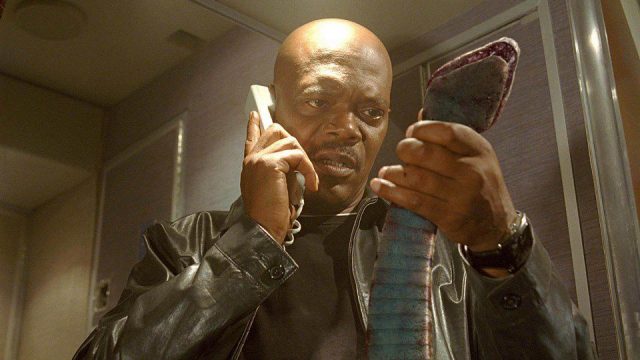American culture has a weird connection with swearing. We do it a lot, and we get very upset when people do it. In one of S. E. Hinton’s books, she has a character who got a book published, and all the characters in it talk the way he does. Which means one of the things he has to do before publication is figure out a way to take out the swearing, because his editor informs him that he won’t be able to sell his book to schools if it’s full of expletives. Having studied banned books—having, as I recall, read Taming the Star Runner, the book in question, for a college contract on banned books, and definitely having read some of her other work—I suspect this is a conversation she herself had about The Outsiders.
My kids have grown up on the idea of “grown-up words.” I forget who I stole this from; it’s someone from the AV Club, who said that it was something they’d said to their own kids about certain words from The Simpsons. My four-year-old is constantly pushing boundaries on this; she’ll say, “Is ‘for the love of Gods’ a grown-up word?” She knows it is, and she knows she’s not supposed to be saying it, and she knows she can get away with it when she’s just asking questions, MOM. TV and movies, in particular TV cuts of movies, have long played this same game.
In fact, there are some TV edits that are justifiably famous for how bonkers they go trying to dodge profanity. So far as I can tell literally the only reason anyone wants to watch Snakes on a Plane in the first place is to see Samuel L. Jackson deliver That Line, and I guess the goal was to make the TV version as memorable. If so, mission accomplished, I suppose. Apparently, the TV edit of Die Hard (I’ve never seen Die Hard, but I suppose you could pay me to) leaves out that same word completely and replaces it with “Mr. Falcon,” “my friend,” “[starts the gunshot sooner],” and “[leaves it out]” in the TV edits of the rest of them. Yes, I looked this up; yes, there’s a Die Hard wiki.
What’s also fun is TV shows that want people to swear the way people in our culture swear but also to be allowed to air on broadcast television. The Good Place does it in such an iconic way that the unofficial cookbook (of course there is one and of course I want it) is called Forking Good. And of course there’s the sci-fi shows. Firefly has “gorram” and Farscape has “frell” and Battlestar Galactica has “frak.” Probably there are others; I’m quite sure that there’s a lot more swearing in Klingon that people realize and that even the “official translations” expurgate how much swearing is just innate to the language.
Perhaps the weirdest entry in this field is in Deadwood. Now, if you don’t know this little detail, I’m sure you’re bewildered, because my goodness but there is swearing in Deadwood. Certainly true. But it also tells us how very strange swearing is as a concept, because what they did was not have them swear less or more than the actual historical figures did. But they had them swear differently. You see, swearing in the 1880s involved a lot more blasphemy than obscenity. To a person from that era, Yosemite Sam is filthy. Fashion changes, even in expletive.

